Service hotline
+86 0755-83044319
release time:2023-12-26Author source:SlkorBrowse:9263
Editor's Note: Given Mr. Song Shiqiang's understanding of the semiconductor supply chain, leading SLKOR in continuous technological innovation and the successful launch of new products, they have achieved remarkable results in the field of "domestic substitution" of electronic components. The "SLKOR" (www.slkoric.com) brand is well-known among peers, with users spanning over 15,000 companies worldwide. Mr. Song Shiqiang was interviewed by Li Liao, a journalist from "Corporate" magazine. "Corporate" magazine is a subsidiary publication of the Central Political and Legal Affairs Commission's newspaper, "Legal Daily," with the aim of promoting the spirit of democratic rule of law and advancing rule-based compliance in enterprise management. The magazine focuses on major economic and legal events and emphasizes corporate compliance management. Li Liao is the chief editor of the "Corporate" magazine at the Legal Daily and the Secretary-General of the Enterprise Compliance Research Institute. He is also the host of the video interview program "Liao Talks Compliance" on the Rule of Law website. This article has been shared by authoritative media such as People's Daily.
The Entrepreneur Selling Houses to Start a Silicon Chips Company
-- Mr Song Shiqiang Interviewed by "Corporate" Magazine
By Li Liao, Journalist from "Corporate" Magazine
Song Shiqiang has gained some fame in the semiconductor industry, jokingly referring to himself as a "serial entrepreneur selling houses." In order to establish SLKOR Micro Semicon Co., Ltd., he used the money earned from the real estate industry.

Interview of Mr. Song Shiqiang by Li Liao, journalist from "Corporate" magazine
Formerly, as an early professional manager in the real estate industry, he served as the CEO of a Hong Kong-listed company. Therefore, when venturing into the semiconductor industry, he did not consider it to be too difficult. "I used to build houses on land, now I'm building houses on silicon chips." However, the reality was that in the first five or six years, "tens of millions were invested, with no visible results."
He admitted that after starting his own business, he realized that his understanding of the industry's current situation, production system, and products was inadequate, and his awareness of the supply chain was insufficient. He failed to form a systematic way of thinking, despite conducting a lot of prior research, and found himself only engaging in empty talk during actual work. Despite repeated setbacks and continuous adjustments to the market strategy, Song Shiqiang's SLKOR company gradually established a foothold in the industry, and the "SLKOR" brand was gradually accepted by customers.

The People's Daily has reprinted an article from "Corporate" magazine featuring an interview with Mr. Song Shiqiang. (Original article link: https://wap.peopleapp.com/article/rmh39213356/rmh39213356)
Becoming a key node in the supply chain
Song Shiqiang put a lot of effort into choosing his entrepreneurial field.
"I agree with Buffett's view that investment should be based on whether the industry is a 'long slope of deep snow.' 'Long slope' refers to the potential and vast space for industry development, while 'deep snow' means the industry has sufficient profits to support it and has not entered a cutthroat price competition stage." At that time, he noticed that China had a huge demand for semiconductors. Since 2015, the import volume of Chinese chips surpassed that of oil, indicating that there were still significant gaps in China's semiconductor supply chain compared to developed countries and economies. This demonstrated that the industry had a large scale and a long development cycle.
He conducted thorough market research and studied the industrial chain, consulting numerous domestic and foreign materials. He even created complex mind maps and built data models for analysis. His conclusion at that time was that there was not much difference in technology between power device products in China and internationally. The equipment requirements for wafer fabs and packaging/testing factories were not very high, with sub-40-nanometer lithography machines fully meeting the requirements. At that time, the domestic production level of power devices was already quite high, and the introduction and transformation of foreign technologies were relatively convenient. Therefore, he decided to enter the industry.

Mr. Song Shiqiang, General Manager of SLKOR/Kinghelm
At the beginning, Mr. Song Shiqiang invested 3 million yuan to co-found a chip trading company with a friend in Huaqiangbei, Shenzhen. "Actually, we were just acting as distributors," he said. "Our customers would give us a complete BOM list with various types of electronic components, and we would help them source all the required part numbers from the list." However, as they were at the end of the semiconductor supply chain, serving small-scale and low-efficiency clients, it was not conducive to standardized, streamlined management or scaled development. Song Shiqiang realized that the semiconductor supply chain was a product of global division of labor and cooperation. So, taking advantage of his knowledge reserve, he began to study how to enter the upstream of the semiconductor supply chain. "Only by seizing the critical nodes of the supply chain can we have influence, chips in hand to play games with both upstream and downstream, and have pricing and bargaining power."
Among the key nodes of the supply chain, high-purity silicon wafers, the basic raw material, are monopolized by foreign giants such as Shin-Etsu of Japan and Corning of the United States. The chip design that SLKOR enters is a light-asset operation, competing with research and development capabilities. Talent and teams are the most important assets, with high gross margins but fierce competition among start-ups. Chip manufacturing is a highly asset-intensive process, with rapid iteration of process technology. Head manufacturers have relatively high gross margins and strong first-mover advantages. TSMC is a representative example. Packaging and testing is also a heavy asset industry with large equipment investments and relatively slow technological progress. It is an easy entry point, but the technology content and product added value are low. Most Chinese mainland companies are concentrated in this area, such as Huatian and Tongfu Microelectronics, which have entered the top ten in the world.
"Semiconductor materials and chip manufacturing are asset-intensive industries, with investments of billions of yuan each year. As an individual, I cannot enter this area, and I am not interested in packaging and testing. So, I started from chip design," said Song Shiqiang.

SLKOR Store on Alibaba International Site
The ups and downs of connecting the supply chain.
Connecting the dots in the semiconductor supply chain is a long and challenging task as it is a globally distributed industry. It is also a long-cycle industry, often requiring a significant amount of time, investment, and technical expertise from project initiation and research and development to mass commercialization. Most investors lack the conditions to face this challenge. "This process is full of uncertainty," said Song Shiqiang.
In keeping with the principle of doing things thoroughly, we have assembled a team of the best talent. We reached out to Professor Zhou Zucheng, an expert in microelectronics at Tsinghua University, and Professor Zhu Yiwei, a veteran of Beijing Yandong Microelectronics Factory, to recommend excellent talent and help us with technology introductions. In the early stages, we couldn't afford high-end talent and there wasn't enough work to keep them busy, so we hired them as consultants. After several years of trial and error, development, and accumulation, we have built a team consisting of the research group of Tsinghua University as the core, combined with the R&D teams of Korea's Yonsei University and Electronic Science and Technology University!

Development model of SLKOR
When introducing technology, it is necessary for the enterprise to have a large scale and strong brand effect. At the time, our startup company had only a few dozen employees, and foreign large companies would not easily cooperate with us. Good technology would not be transferred to us. After our continuous efforts and relying on China's vast consumer market, we were recommended by a friend who was working at BYD Semiconductor at the time, and we reached a cooperation agreement with a Korean research institute. They had international leading technology reserves at the time, but the domestic market in Korea was small and highly competitive. We had some gaps in technology and the industrial chain at the time, but there was a huge domestic market space. It was a win-win solution to perfect their technology and sell products in the Chinese market. At that time, we ambitiously determined the name and trademark "SLKOR" for SLKOR Micro Semicon, with "S" being the first letter of my English name Smith Song, "L" being the first letter of the co-founder's English name Lion Lee, and "kor" being the abbreviation of Korea, indicating that SLKOR's early technology originated from Korea, and "Micro" indicates that we work in the microelectronics industry (www.slkoric.com). The early cooperation went very smoothly, and we quickly launched mass-produced products. In the past few years, we have encountered difficulties in our operations, but we still worked together and overcame the hardest times. Now SLKOR has mastered the international leading third-generation semiconductor silicon carbide power device technology. To ensure the long-term steady development of SLKOR, our technology layout and product development plan have been arranged for five to ten years.
"Every time we design a new product or process iteration optimization, we need to constantly communicate with the engineers of the wafer factory, and we can only go to mass production after considering the performance of the production line equipment and getting it about right. Each round takes about a year, and at least three to four million yuan is needed."

SLKOR product roadmap
After the design drawings are completed, the next step is the wafer fabrication process. The semiconductor industry is no stranger to wafer fabrication, as this is an essential intermediate stage between chip design and mass production, and is a critical aspect of chip manufacturing. In simple terms, it involves handing over the designed solution to the manufacturer, producing a few samples, testing the chips for functionality, and then continuously fine-tuning and optimizing them. If the tests are successful, mass production can begin. Initially, due to the lack of understanding of our advanced processes by the engineers from the selected manufacturer and their low efficiency, it had an impact on the progress of product entry into the market. As a result, Smith Song reestablished cooperation with a manufacturer in Korea.
"The choice of process technology, wafer size, and the complexity of the chip will all affect the success rate and cost of wafer fabrication for this chip. Moreover, many chips cannot be successfully fabricated in a single attempt; often, multiple wafer fabrication runs are needed to achieve relatively ideal results. Our SLKOR 1200V silicon carbide field-effect transistor product went through four wafer fabrication runs before successful mass production," he said. "Wafer fabrication costs are very high; a single run in Korea costs about 4 million RMB. Even if the products are functional after a successful wafer fabrication, it does not mean that they will be profitable. The semiconductor industry relies on economies of scale. Initially, due to our relatively small scale, we had difficulty selling at a high price, which eventually led us to offer discounts to avoid affecting the launch of the next generation of products."

Development History of SLKOR
When looking for downstream packaging and testing partners, Song Shiqiang said that in order to ensure quality, they first looked for foreign manufacturers because SiC products were technologically advanced and relatively expensive. However, there was a problem where the delivery time for the finished product from Korea was too long, resulting in poor customer service. Therefore, they searched domestically for substitute manufacturers. After continuous efforts, they finally learned at the Munich Electronics Show in Shanghai that there was a packaging and testing company in Taizhou with the technical strength they needed. They immediately sent their technical vice president to negotiate and began working together after constant communication and coordination. Now, this company has become their best and highest quality supplier.
"In the product sales process, we initially sent out samples worth tens of thousands of yuan. At first, we only received small orders worth several hundred or thousand yuan, and did not have a large number of return orders, resulting in a large loss of employees. I was very distressed," he said. Due to the initial mistakes in wafer production and unsuccessful product sales, the company's cash flow was seriously affected. In the end, they had to sell a house to finance a wafer production run. This is the story of "Old Song selling his house to start a business" that is circulated in the semiconductor industry!
Upon reflection, they realized that the reason was that the capacity of the SiC product market was too small. In order to survive, Song Shiqiang and his team immediately adjusted their strategy, applying their previously advanced power device technology to conventional products, and developing products with high market demand such as TVS tubes, high-voltage MOSFETs, IGBTs, sensors, etc. With the previously established supply chain resources, they were able to quickly utilize them and strike the market with reduced dimensions. In recent years, they have gradually achieved profitability, and the "SLKOR" brand has become increasingly well-known and reputable in the industry!

Song Shiqiang is testing new silicon carbide products in the laboratory
The Reflections Brought by the Chip Shortage
In the second half of 2020, the global chip shortage was triggered by the disruptions in the supply chain caused by the COVID-19 pandemic and the unexpectedly high demand recovery. Semiconductor companies were inevitably affected. The main reasons for the shortage can be summarized as follows: Firstly, the pandemic-induced lockdowns led to a significant number of white-collar workers working remotely from home, resulting in increased demand for office equipment such as computers and printers. Additionally, children also needed to attend online classes from home, further increasing the demand for electronic smart devices. Secondly, the US prepared to impose restrictions on Huawei's components, and TSMC stockpiling for Huawei squeezed the capacity available to other customers, causing their products to also face shortages. Furthermore, the widespread adoption of fingerprint recognition chips in smartphones and smart locks added further pressure on wafer fabs to increase production capacity, accelerating the disruption of the supply chain. The combination of these three factors prompted middle-tier distributors and merchants in Huaqiangbei to seize business opportunities and hoard supplies. Subsequently, downstream factories also followed suit, leading to panic buying and hoarding. "At that time, SLKOR was still a new brand with not very high sales volume. Because we usually pay attention to supply chain security and maintain some safety stocks, we actually took the opportunity to expand our market share," said Song Shiqiang. However, through this incident, he realized the need to achieve supply chain security, independence, and controllability. "At that time, our most important wafer flow layout was in South Korea, but in order to prevent others from controlling us, we need to shift the supply chain to China."
In his view, the supply chain is both about division of labor and cooperation, and blood circulation needs to be established. "The blood circulation here refers to orders. The supply chain is cultivated through orders. If there are no orders, suppliers will not establish a close connection with you. Therefore, even in the most difficult times for a company, there must be continuous and stable orders for them, and they should be given a little more profit, so as to form a mutually supportive situation." However, in reality, many corporate leaders and investors often focus more on research and development capabilities and whether the product can be developed. "In fact, it's not difficult to develop a product, what's difficult is to achieve mass production, competitiveness, and profitability after development. Products that cannot generate profit will inevitably fail to sustain."Song Shiqiang admitted that this is the reason why many semiconductor companies go bankrupt". "Successful companies invariably have a strong supply chain." After several years of adjustments, SLKOR gradually shifted the nodes of its supply chain to China, coinciding with the wave of "domestic substitution" in China. SLKOR also caught the opportunity at the right time!

SLKOR Introduction
Nowadays, the industry has entered a period of adjustment during the downturn. Upstream wafer fabs have insufficient production capacity, and the manual labor cost in the production and circulation links has increased. Song Shiqiang tries to give profits to upstream and downstream customers as much as possible to maintain the ecological balance of the supply chain.
After several years of development, the high-end industry in the semiconductor supply chain has gradually transitioned from Europe, America, Japan, and South Korea to China. With breakthroughs in technology and the emergence of a large number of high-end talents in China, SLKOR Semiconductor is also in a rapid growth period. The company's integration with the supply chain, brand penetration, channel development, and team building have all become more mature. The company hopes to achieve its vision of becoming a "semiconductor leader" soon!
(This article was published in the December 2023 issue of "Corporate Legal Person" magazine, with some additions and deletions.)

Huaqiangbei Song Shiqiang
Introduction of Song Shiqiang:
Mr. Song Shiqiang is the General Manager of SLKOR Semiconductor and Kinghelm Electronics, two companies based in Shenzhen, China. He is a member of the Expert Database of the Chinese Electronics Society, a research expert at Huaqiangbei in Shenzhen, and a columnist and popular science writer. Starting his career as a grassroots technician, Mr. Song has served as the CEO of an internationally listed real estate company and has rich experience in technical management and corporate operations. He combines macroeconomic theories with practical business management to lead the rapid development of the companies.
SLKOR Semiconductor and Kinghelm Electronics, invested by Mr. Song Shiqiang, are both headquartered in Shenzhen, China, and are national high-tech enterprises. The brands "SLKOR" (www.slkoric.com) of SLKOR Semiconductor and "Kinghelm" (www.kinghelm.net) of Kinghelm Electronics have gained international recognition and reputation, with their market share gradually expanding. SLKOR Micro Semicon Co., Ltd. in Shenzhen focuses on the research and development of new materials, new processes, and new products. Its technical team comes from Yonsei University in South Korea and Tsinghua University, and they possess internationally leading silicon carbide MOSFET technology. SLKOR Semiconductor has evolved from a fabless design company to one that integrates design and development, manufacturing, product sales, and technical services. It is also a member of the "Shenzhen Electronics Chamber of Commerce."
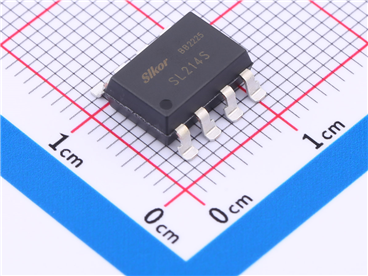
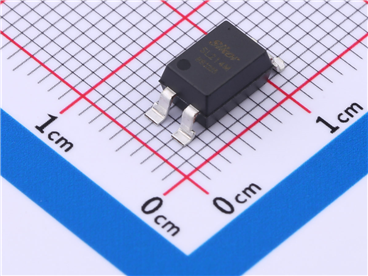
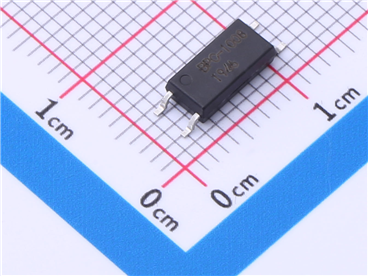
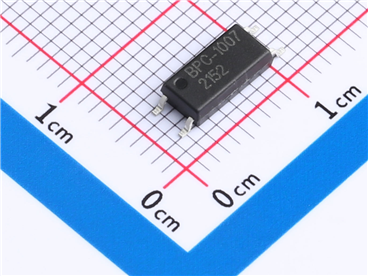
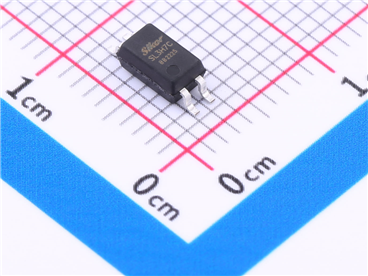

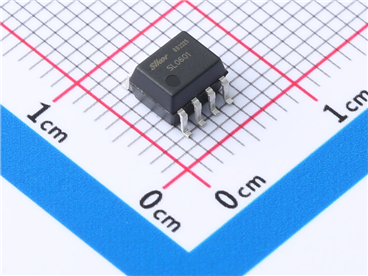


Site Map | 萨科微 | 金航标 | Slkor | Kinghelm
RU | FR | DE | IT | ES | PT | JA | KO | AR | TR | TH | MS | VI | MG | FA | ZH-TW | HR | BG | SD| GD | SN | SM | PS | LB | KY | KU | HAW | CO | AM | UZ | TG | SU | ST | ML | KK | NY | ZU | YO | TE | TA | SO| PA| NE | MN | MI | LA | LO | KM | KN
| JW | IG | HMN | HA | EO | CEB | BS | BN | UR | HT | KA | EU | AZ | HY | YI |MK | IS | BE | CY | GA | SW | SV | AF | FA | TR | TH | MT | HU | GL | ET | NL | DA | CS | FI | EL | HI | NO | PL | RO | CA | TL | IW | LV | ID | LT | SR | SQ | SL | UK
Copyright ©2015-2025 Shenzhen Slkor Micro Semicon Co., Ltd